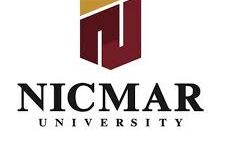The girl was found to have pancreatitis due to her genetic disposition. Consequently, she developed a pancreatic pseudocyst which led to an aneurysm in the gastroduodenal artery (GDA), that ultimately ruptured, and she presented with acute pain
*The incidence of the leaking pseudoaneurysm in a pseudocyst of the pancreas is a very rare problem probably found in 1 in 10, 00,000 children with pancreatitis*
Mumbai: In a noteworthy achievement, a team of experts at Lilavati Hospital and Research Centre led by Dr Rajeev Redkar, Paediatric Surgeon along with Dr Aniruddha Phadke(Gastroenterologist), Dr Deepak Ugra (Paediatrician) , Dr Rahul Sheth (Interventional radiologist), Dr Minhaj Sheikh(Pediatrician) successfully treated a rare and life-threatening pancreatic condition in a 13-year-old girl from Sangli, Maharashtra. The patient was detected with pseudoaneurysm in the gastroduodenal artery in the pseudocyst of the pancreas along with pancreatitis which was successfully managed by a minimally invasive procedure guided by angiography, performed by Dr Rahul Sheth, an Interventional Radiologist. This procedure not only alleviated her pain but also offered a lasting solution to her complex condition.
Patient Aditi Kamble experienced symptoms such as acute abdominal pain one week ago. The young girl, who has a family history of pancreatic disease, was diagnosed with acute pancreatitis two years ago. Her family sought the advice of a gastroenterologist, but she didn’t improve. She continued to have intermittent pain in her abdomen. Last week, she experienced severe abdominal pain accompanied by vomiting which interfered with her daily routine. She visited another hospital in Mumbai where her condition could not be managed. After that, the patient was admitted to Lilavati Hospital for this life-saving intervention.
Dr Rajeev Redkar, Paediatric Surgeon, Lilavati Hospital Mumbai said, “The patient was in distress due to unbearable abdominal pain on arrival in the Hospital. Her abdomen CT scan revealed a pseudocyst (a fluid-filled mass in the pancreas) and a leaking pseudo-aneurysm of the gastro-duodenal artery within the pseudocyst, a rare and critical condition, especially in children. The patient suffered from this condition due to genetic factors as her father also struggled with pancreatic disease. After the pancreatitis resolved, she was detected with pseudocyst of the pancreas and pancreatitis (swelling and inflammation of the pancreas). The incidence of the leaking pseudoaneurysm in a pseudocyst of the pancreas is a very rare problem probably found in 1 in 10, 00,000 children with pancreatitis. The girl also had a dilated pancreatic duct and stones within her pancreas which further compromised the functioning of the pancreatic gland. The compromised pancreatic function caused stunted growth and acute on chronic abdominal pain.”
Dr Rajeev Redkar added, “In collaboration with interventional radiologists, advanced angiographic techniques were utilized to approach and coil the aneurysm, successfully stopping the active bleeding and obliterating the aneurysm. This uneventful procedure called angiographic embolization of the gastroduodenal artery (GDA) aneurysm lasted for one hour. The patient was discharged after one week in a stable condition. Her pain is resolved and follow-up sonography has shown no recurrence. Not treating her at the right time could have raised the risk of complications like bleeding inside the pseudo pancreatic cyst. This case highlights Lilavati Hospital’s commitment to delivering life-saving care for the patients.”
“We are deeply thankful to Dr Rajeev Redkar and his team for their exceptional care and expertise. They not only saved my daughter’s life but also gave us hope by managing her condition. She is excited to return to school and spend time with her friends,” said the patient’s mother expressing his gratitude for the timely intervention.
Our team at Lilavati Hospital is committed to providing the highest level of care, and the successful treatment of this young patient is a testimony to unmatched care and dedication. With the help of the latest technology and expertise, together we tackle even the rarest and most complex conditions. This case highlights the power of teamwork, advanced medical care, and our relentless focus on improving patient outcomes. We’re proud to have saved this child’s life and offer a brighter future for her,” concluded Dr Niraj Uttamani, Chief Operating Officer at Lilavati Hospital & Research Centre, Bandra.
 Newspatrolling.com News cum Content Syndication Portal Online
Newspatrolling.com News cum Content Syndication Portal Online







